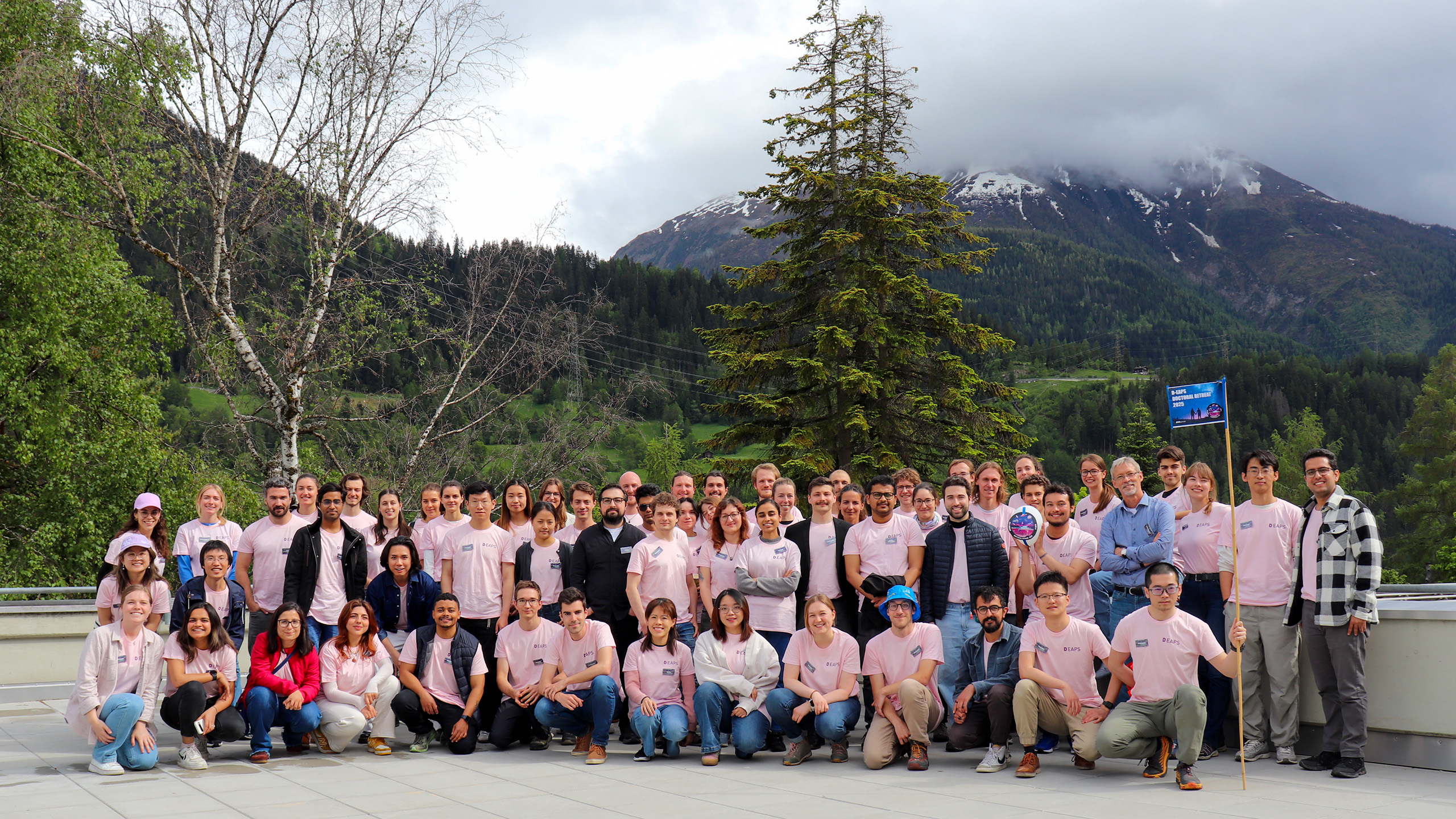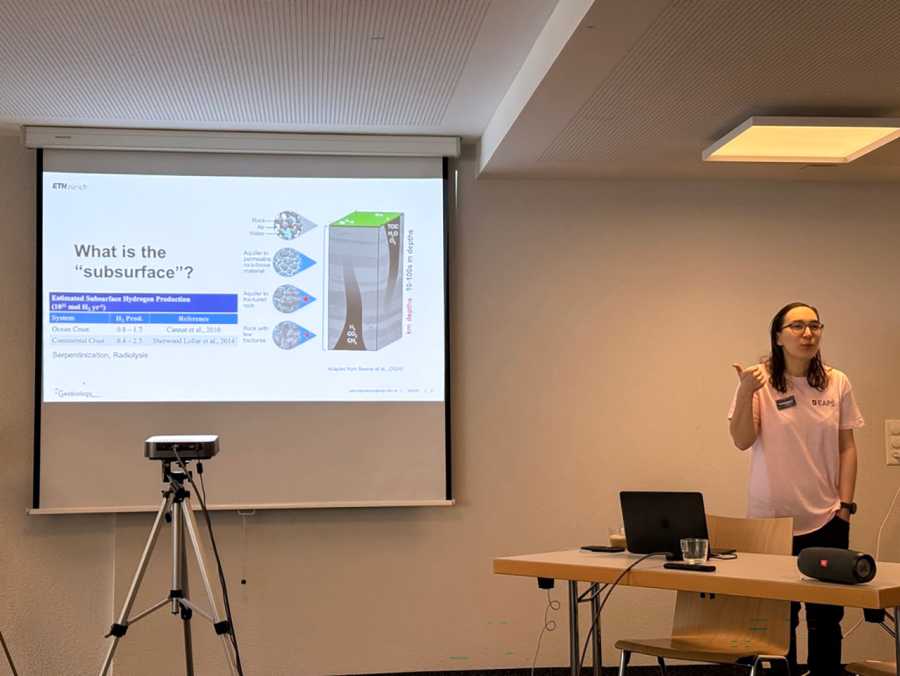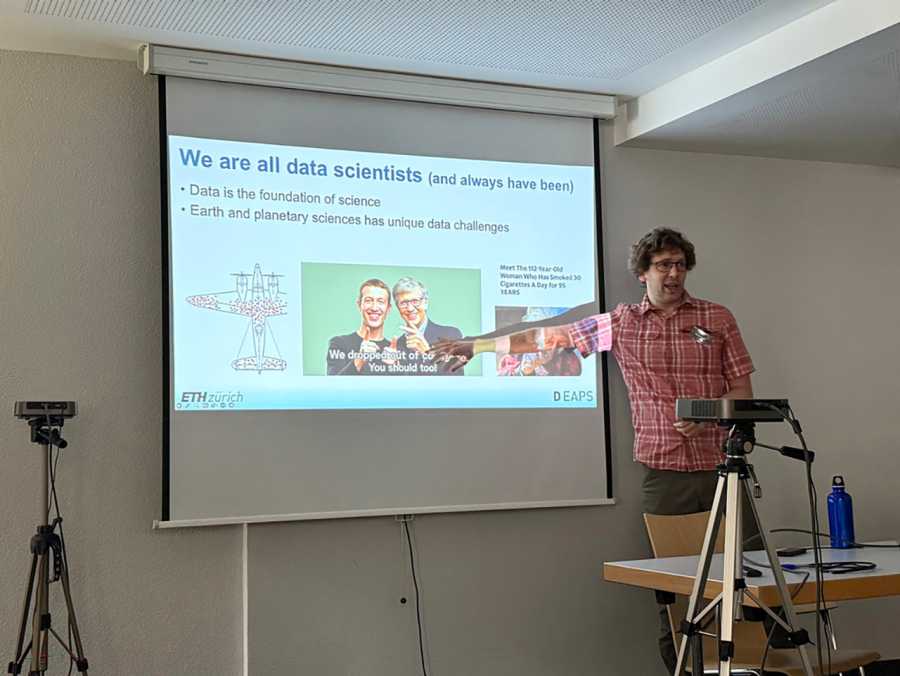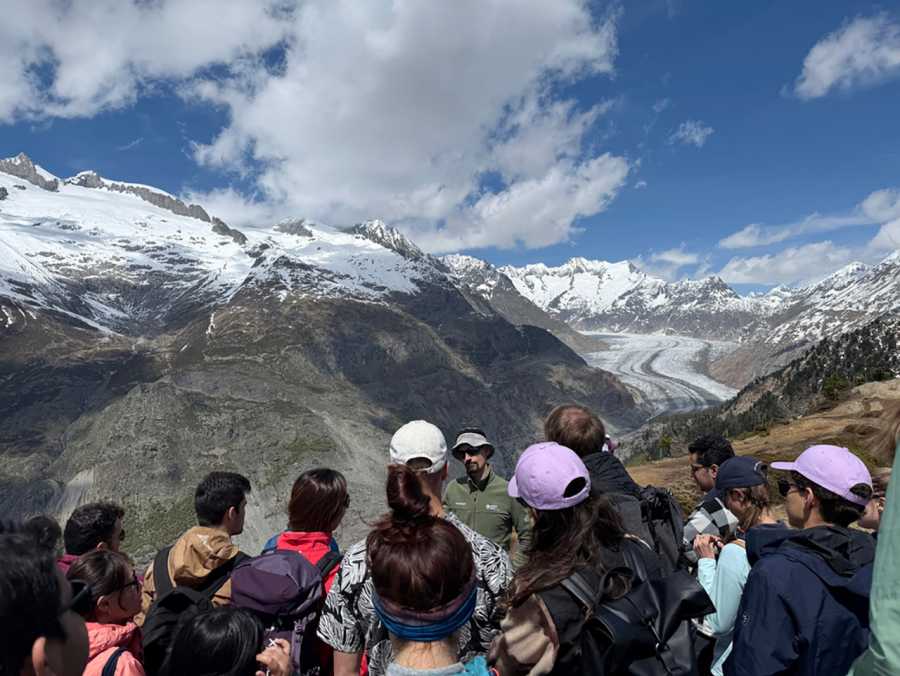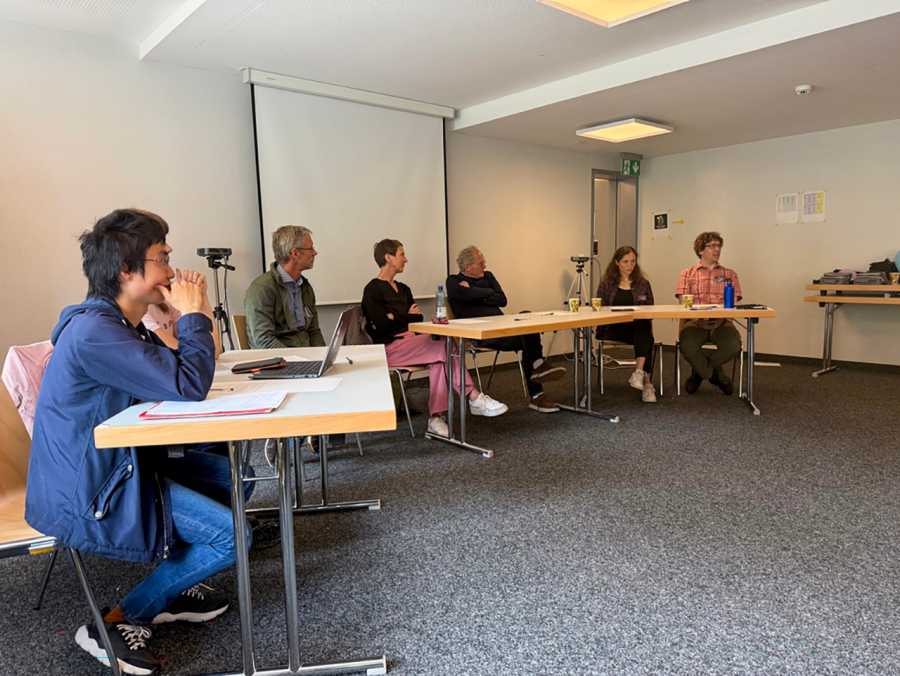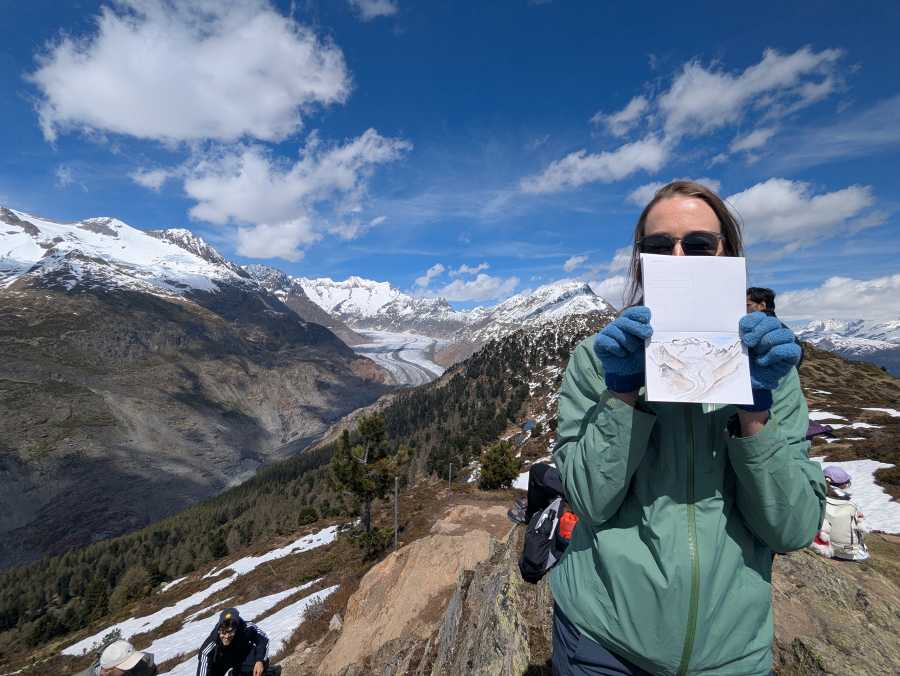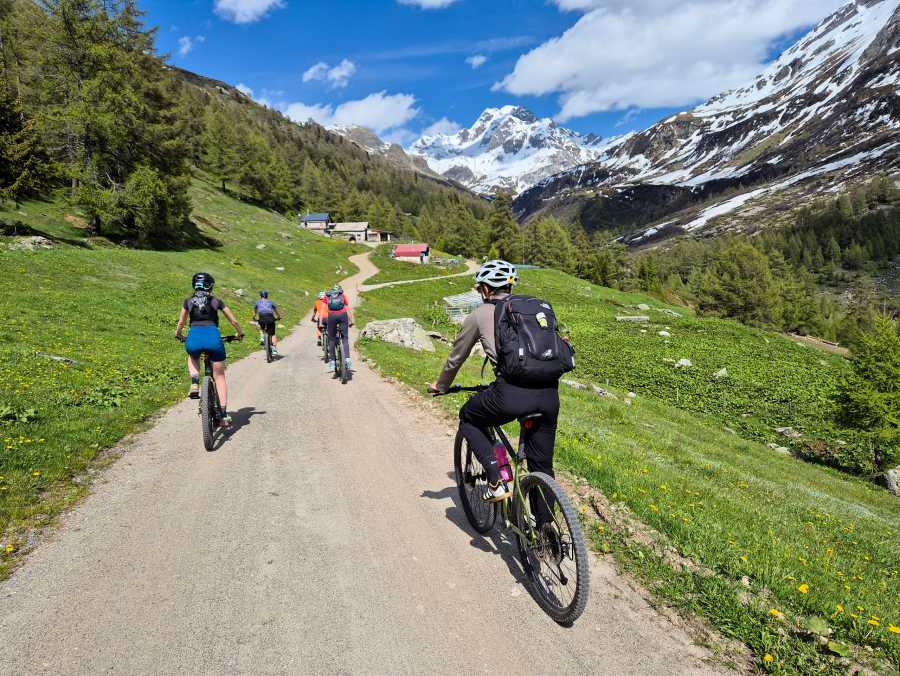The departmental doctoral retreat is a long tradition, serving as an opportunity to bring together doctoral students and researchers from various backgrounds in the department. This year, the D-EAPS Doctoral Retreat (the first one after the name change of the department), was held from the 22 to the 25 May 2025, in the beautiful municipality of Fiesch, in the vicinity of the Jungfrau-Aletsch protected area in Valais. In the four days, the participants enjoyed a banquet of academic and social programmes.
The scientific talks this year spanned a wide spectrum in Earth and Planetary Sciences. From Prof. Cara Magnabosco's work on underground microorganisms, to Dr. Daniel Bower's talk on how the exploration and models of the Earth may be extrapolated to planets, the topics covered a vast range of time and length scales. Meanwhile, we also had a focus on mesoscale geoscience, where the relation between human and nature is most direct. Dr. Barbara Molnar's talk on invasive species demonstrated the cause and consequences of invasive species in the ecosystem around the globe and in Switzerland. Prof. Daniel Farinotti's talk on glaciers evaluated the current monitoring and state of glaciers and highlighted the projected global and regional consequences of glacial loss.
These talks emphasised the mutual interaction between the environment and
anthropogenic activities.
